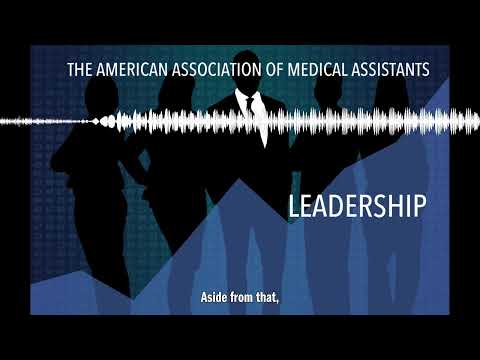Considering a Career in Medical Records? Here’s What You Need to Know
Contents [show]
Considering a career in medical records? Here’s what you need to know about the education requirements, job outlook, and pay potential.
Checkout this video:
Considering a Career in Medical Records?
Medical records play a vital role in the healthcare industry, providing crucial information that can be used to improve patient care, track outcomes, and support research. If you’re considering a career in medical records there are a few things you should know.
First, Medical records jobs are expected to grow much faster than the average for all occupations through 2024, according to the U.S. Bureau of Labor Statistics. This growth is driven by the increasing use of electronic health records (EHRs), which are replacing paper records in many healthcare facilities.
Second, while you don’t need a specific degree to work in medical records some employers may prefer candidates with a degree in health information management or a related field. Courses in Medical Terminology anatomy, and physiology can also be beneficial.
Third, depending on your position, you may need to be certified by the American Health Information Management Association (AHIMA). There are several different certification options available through AHIMA, so you’ll need to research the requirements for your desired position.
If you’re interested in a career in medical records, there’s never been a better time to get started. With job growth expected to be strong and the increasing use of EHRs creating new opportunities, now is the perfect time to pursue this rewarding career path.
What is Medical Records?
Medical records is the field of healthcare that deals with the management and maintenance of patient records. This includes keeping track of medical histories, treatments, medications, and test results. Medical records professionals may work in hospitals, clinics, or doctor’s offices, and they may be responsible for maintaining both paper and electronic records.
The role of medical records is important in healthcare because it helps to ensure that patients receive the best possible care. When doctors and other healthcare providers have access to accurate and up-to-date medical records, they can make well-informed decisions about diagnosing and treating patients. In addition, medical records can be used to track trends in healthcare and to conduct research on new treatments and medications.
If you are interested in a career in medical records, there are a few things you should know. First, you will need to have at least a high school diploma or equivalent; however, many employers prefer to hire candidates who have completed some type of postsecondary training in Medical coding or health information technology. In addition, it is important to have strong computer skills as most medical records are now maintained electronically. Finally, it is helpful to have good organizational skills and attention to detail as you will be dealing with large amounts of sensitive information on a daily basis.
What Does a Medical Records Specialist Do?
Medical records specialists are responsible for organizing, managing and storing patient records in both paper and electronic formats. In addition to maintaining files, these professionals may also be responsible for coding diagnoses and procedures, managing Release of Information (ROI) requests, and ensuring that all documentation meets HIPAA compliance standards.
With the transition to electronic health records (EHRs), medical records specialists must be proficient in using a variety of software programs. They also need to have strong attention to detail and excellent organizational skills. Most medical records specialists have at least an associate’s degree in health information technology or a related field.
What are the Education Requirements for a Career in Medical Records?
Medical records technicians typically need at least an associate’s degree to enter the field, although some jobs may only require a postsecondary certificate. Technology has led to new ways of storing and accessing medical records, so many programs now offer coursework in computer science and health information technology, in addition to more traditional medical billing and coding training.
What are the Job Prospects for a Career in Medical Records?
The job outlook for a career in medical records is very good. According to the Bureau of Labor Statistics, the field is expected to grow by 22 percent through 2022, which is much faster than the average for all occupations. The aging baby boomer population is one of the main drivers of this growth, as older adults tend to require more medical care than younger people.
What is the Salary Potential for a Career in Medical Records?
If you’re considering a career in medical records, you’re probably wondering what kind of salary you can expect to earn. The short answer is that your potential earnings will depend on factors such as your level of experience, education, and the state in which you work.
According to the Bureau of Labor Statistics (BLS), the median annual salary for medical records and health information technicians was $40,350 in May 2019.1However, salaries ranged from less than $25,850 for the lowest 10 percent earners to more than $64,690 for the highest 10 percent earners.1 In general, those working in management positions or with more experience tend to earn higher salaries.
The BLS also reports that employment of medical records and health information technicians is projected to grow 11 percent from 2018 to 2028—much faster than the average for all occupations.1 With the expansion of healthcare facilities and an aging population that will require more medical care, there is expected to be an increased need for technicians who can maintain accurate patient records.
What are the Top States for Medical Records Jobs?
If you’re thinking about starting a career in medical records, you’re probably wondering where the best places to work are. Here’s a look at the top three states for medical records jobs, based on data from the Bureau of Labor Statistics.
1. California
There are over 22,000 people employed in medical records in California, making it the state with the most medical records jobs. The average salary for a medical records professional in California is $63,430 per year.
2. Texas
Texas is home to over 18,000 medical records professionals, and the average salary in the state is $58,990 per year.
3. Illinois
Illinois has just over 12,000 people employed in medical records jobs, and the average salary in the state is $57,880 per year.
What are the Top Cities for Medical Records Jobs?
The medical records field is one of the few healthcare jobs that can be done entirely remotely. With the right qualifications, you can work from anywhere in the country.
That said, some places are better than others when it comes to finding a job in medical records. Here are the top five cities for medical records jobs, based on data from the Bureau of Labor Statistics:
1. New York, NY
2. Chicago, IL
3. Houston, TX
4. Philadelphia, PA
5. Los Angeles CA
These cities have the highest concentrations of medical records jobs in the country. If you’re looking for a job in medical records, these are the places to start your search.
What are the Top Companies for Medical Records Jobs?
There are a number of different companies that offer medical records jobs. However, not all of these companies are created equal. Some are better than others when it comes to things like job satisfaction, pay, and benefits.
Here are some of the top companies for medical records jobs:
-Epic Systems Corporation
-Cerner Corporation
-Allscripts Healthcare Solutions, Inc.
-McKesson Corporation
What are the Tips for a Successful Career in Medical Records?
If you are considering a career in medical records, there are a few things you should know in order to be successful. Below are some tips for those in the medical records field:
– Stay organized: This is crucial in any line of work, but especially important in medical records. You will need to keep track of patients’ records and ensure that they are up to date.
– Pay attention to detail: In order to accurately keep track of patients’ records, you will need to be detail oriented. This means paying attention to small details and being able to catch errors.
– Be good with computers: In today’s world, most medical records are kept electronically. This means you will need to be comfortable using computers and various software programs.
– Stay up to date on changes: The medical field is constantly changing, so it is important that you stay up to date on any changes in legislation or policy that could affect the way you do your job.







